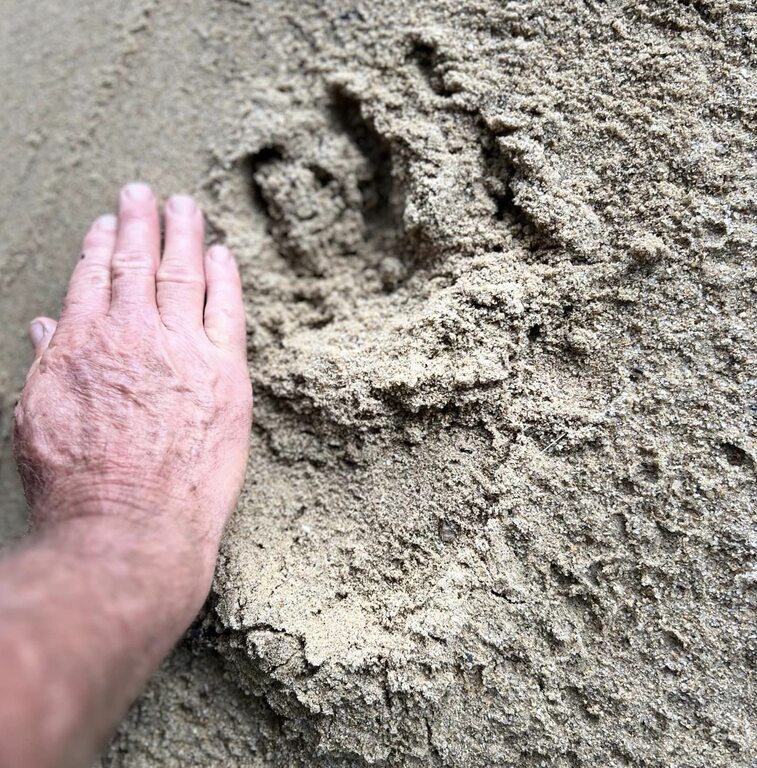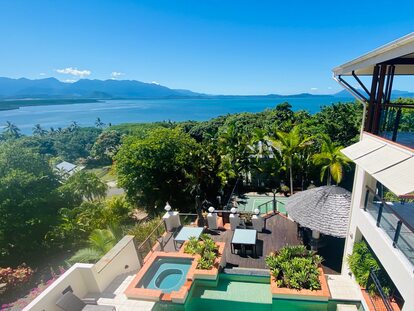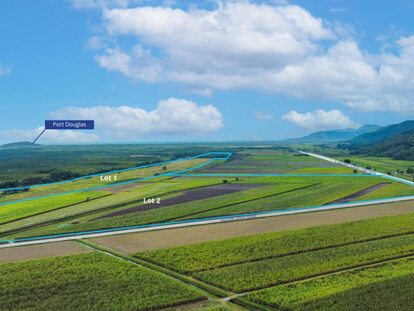Wonga Beach crocodile sighting spurs safety debate: local croc expert offers insights
OPINION

A recent crocodile sighting in Wonga Beach has stirred up the ongoing discussion about safety among locals and wildlife management. Responding to community concerns, Far North croc expert, David White has penned a detailed opinion piece addressing the issue.
The discussion erupted in the Wonga Beach Facebook group after a local resident posted images of a crocodile footprint near Janbal Close beach entry on February 14th, sparking calls from residents to remove the crocodile.
David White, well-known as the owner of the Solar Whisper tour operator in the Daintree region, shared his insights on the Wonga Beach Facebook Group.
“I just wanted to explain a few things because I care about the community too,” the post reads. “Whether I like, love, or hate crocs is irrelevant. This is about safety, a shared concern. Only the thing is, croc lovers understand how to be safe, croc haters want the government and a gun to bring them that safety.
"Many want the croc culled, but catching one in the open ocean is nearly impossible for the DES. Even if they miraculously did, it won’t improve safety. This is tough for people to understand. I understand that many people here came from a time when they could swim with impunity and the reference point for normal is the 70’s.
“So many here say well just cull them and bring back that time, but we can’t. Many things have changed since that time, such as gun laws. In those days anyone could have a gun and were shooting crocs everywhere for money.
“Secondly, unregulated hunting from ALL of croc country in every creek, river, lagoon and isn’t going to happen as Cape York has a lot of crocs and they are going to keep coming from there, WA and NT also have a lot. Crocs can swim 1000’s of km, there is no fence around North Queensland.
“And here’s the hardest part to understand, scientists have shown that density isn't the main cause of human fatalities; it's our behaviour in crocodile habitats. For instance, countries like Indonesia, with fewer crocs but lacking croc-wise education, have 10 fold the fatality. Conversely, Shady Camp in the NT, with the world's highest crocodile density, has had no fatalities. Scientists agree that culling fosters human complacency, leading to danger as we mistakenly feel safe.
“History showed us this too, after the biggest cull this country ever had and these animals were decimated to the point that hunters could not find them anymore. Three decades of unregulated hunting could not save the life of Peter Reimer, a 32 year old man that went for a dip in croc country. Because it only takes one croc to ruin your day and unless we shoot them all culling won’t work.
“And for those that want to shoot them all, we as a nation have a shocking history of animal extinction. The recovery of the croc is a success story and that path of making them extinct, is not one the country will agree with no matter how much some want it to.
“Up here we are in a region that relies on tourism, and tourists come from around the world to see our wildlife, not our wild death. It is not something to be proud of to deal with human wildlife conflict with a gun. Australia has a world class croc wise education program and that will keep you and your family safe.
Furthermore, crocodiles are masterful stealth predators, blending seamlessly into their surroundings. The one laying on the beach isn’t the threat; it’s the unseen ones lurking in the water, undetected yet vigilant. With remarkable senses, they perceive your presence long before you notice theirs.
“So be croc wise in croc country, the government and the rangers can’t keep you safe but you can. Enjoy nature, but remember, crocs are part of it. Don't let your guard down, even if you don't see them. Quick fixes won't solve the issue; it's our responsibility to manage our actions. Educate children on croc safety, just like we do with road safety, as awareness minimises risks.”






















